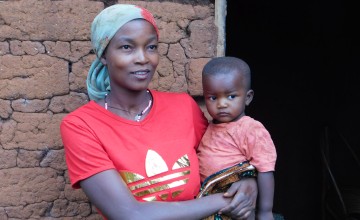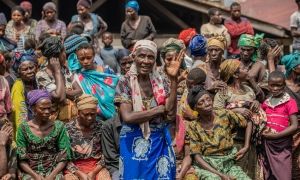
Read our 2024 annual report

Knowledge Hub
Social mobilisation to prevent child malnutrition and key childhood diseases in Burundi
Social mobilisation to prevent child malnutrition and key childhood diseases in Burundi.

The Irish Global Health Network Conference was held on 26th and 27th October 2022.
Concern in Burundi presented the project 'Social mobilisation to prevent child malnutrition and key childhood illnesses in Burundi' at the 'Social inclusion and Marginalisation - Child and Adolescent Health' session.
The presentation outlines the integrated approaches used by Concern in Burundi:
- Social and Behaviour Change Communication (SBCC)
- Integrated Community Case Management (iCCM)
The programme found that of the 4,291 children suffering from moderate acute malnutrition (MAM), 3,808 improved their nutritional status, gaining at least 200g.
Engagement of communities through the Positive Deviance Hearth (PD Hearth) approach and Care Groups was found to be critical in the treatment of MAM.
Ensuring regular and continuous supply of essential medicines for treatment was also found to be critical.
Visit the Irish Global Health Network Conference 2022 page on the Irish Global Health Network website!
This publication covers aid activities implemented with the financial assistance of several donors, including Irish Aid, European Union, UK Foreign, Commonwealth and Development Office (FCDO), United States Agency for International Development (USAID) and others. The ideas, opinions and comments herein are entirely the responsibility of the author(s) and do not necessarily represent or reflect the policies of any donors.




